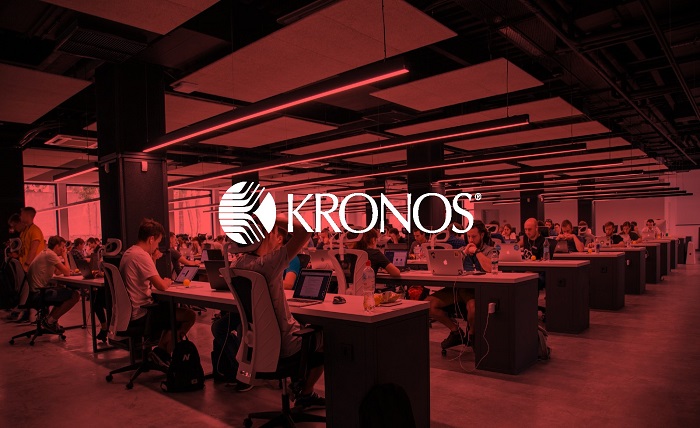Kronos Hack: Everything You Need to Know

On December 11, 2021, Kronos, a workforce management company that serves over 40 million people in over 100 countries, was notified that a ransomware attack had compromised its Kronos Private Cloud. As a result of the attack, millions of Kronos employees were unable to log into their accounts, access their schedules, and submit their timesheets. This caused widespread disruption to Kronos customers, including many large and well-known organizations such as Tesla, PepsiCo, Whole Foods, and the New York Metropolitan Transit Authority.
The Kronos hack was one of the most high-profile ransomware attacks of 2021, and it served as a stark reminder of the risks posed by third-party vendors. The attack also highlighted the importance of having a business continuity plan in place for critical systems.
What is Kronos?
Kronos is a workforce management software suite that helps organizations track employee time and attendance, manage schedules, and process payroll. Kronos is used by a wide range of organizations, including businesses of all sizes, government agencies, and educational institutions.
How did the Kronos hack happen?
The Kronos hack was caused by a ransomware attack, which is a type of cyberattack in which attackers encrypt a victim’s data and demand a ransom payment in exchange for the decryption key. In the case of the Kronos hack, the attackers used a ransomware strain called REvil to encrypt the data on Kronos’ Private Cloud servers.
The attackers were able to gain access to Kronos’ servers by exploiting a vulnerability in the Apache Log4j library. Log4j is a popular logging library that is used by many Java applications, including Kronos. The vulnerability in Log4j allowed attackers to execute arbitrary code on vulnerable systems.
What was the impact of the Kronos hack?
The Kronos hack had a significant impact on Kronos customers. Millions of employees were unable to log into their accounts, access their schedules, and submit their timesheets. This caused widespread disruption to businesses and organizations of all sizes.
In addition to the disruption to employee productivity, the Kronos hack also had a financial impact on Kronos customers. Many customers were unable to process payroll accurately and on time, which resulted in employees being underpaid or overpaid. Some customers also incurred additional costs to implement manual workarounds and to hire consultants to help them recover from the attack.
What lessons can we learn from the Kronos hack?
The Kronos hack serves as a reminder of the importance of cybersecurity. Organizations need to have robust security measures in place to protect their systems and data from cyberattacks. Organizations should also have a business continuity plan in place for critical systems. This will help them to minimize the disruption to their operations in the event of a cyberattack or other disaster.
Here are some specific lessons that organizations can learn from the Kronos hack:
- Keep your software up to date. The vulnerability in Log4j that was exploited by the attackers was known about and patched several weeks before the Kronos hack occurred. Organizations should have a process in place to patch vulnerabilities promptly.
- Use strong passwords and multi-factor authentication (MFA). The attackers were able to gain access to Kronos’ servers by exploiting a weak password. Organizations should require their employees to use strong passwords and to enable MFA for all of their accounts.
- Segment your network. Segmentation can help to prevent attackers from moving laterally through your network and accessing other critical systems.
- Have a business continuity plan in place. A business continuity plan will help you to minimize the disruption to your operations in the event of a cyberattack or other disaster.
Conclusion
The Kronos hack was a major cybersecurity incident that had a significant impact on organizations of all sizes. The attack served as a stark reminder of the risks posed by ransomware attacks and the importance of having robust cybersecurity measures in place.
Organizations can learn a number of lessons from the Kronos hack, including the importance of keeping software up to date, using strong passwords and MFA, segmenting their network, and having a business continuity plan in place.
The long-term implications of the Kronos hack are still being assessed. However, the attack is likely to lead to increased scrutiny of third-party vendors and a greater focus on cybersecurity by organizations of all sizes.
FAQ
Q: What should I do if I am a Kronos customer and I have been affected by the hack?
If you are a Kronos customer and you have been affected by the hack, you should contact Kronos support immediately. Kronos will be able to provide you with more information about the impact of the hack on your organization and the steps that you need to take to recover.
Q: What should I do if I am a Kronos employee and I have been affected by the hack?
If you are a Kronos employee and you have been affected by the hack, you should contact your employer immediately. Your employer will be able to provide you with more information about the impact of the hack on your organization and the steps that you need to take to protect yourself.
Q: What are the long-term implications of the Kronos hack?
The Kronos hack is likely to have a




